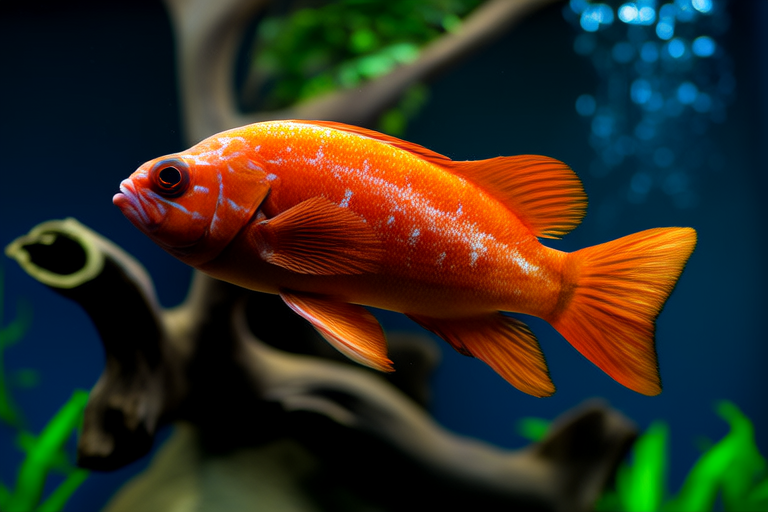Top Secrets for Keeping Your Parrot Fish Happy and Healthy
Welcome to the vibrant world of parrot fish care! These colorful and captivating creatures can bring joy and beauty to any aquarium. However, ensuring their well-being requires more than just setting up a tank; it demands understanding their unique needs and behaviors. In this guide, we’ll explore top secrets to keep your parrot fish happy and healthy, covering everything from aquarium setup to dietary requirements and environmental enrichment.
Aquarium Setup: Creating a Comfortable Home
The first step in keeping your parrot fish healthy is creating an ideal living environment. Parrot fish need spacious tanks due to their large size and active nature. A minimum of 75 gallons is recommended for one adult parrot fish, but larger tanks provide better swimming space and reduce stress. Use a heater to maintain a stable temperature between 76°F and 82°F (24°C to 28°C), as parrot fish thrive in warm waters. Additionally, a good filtration system is crucial to maintaining clean water, which is vital for their health.
Parrot fish also appreciate plenty of hiding spots and caves. Decorate the tank with rocks, driftwood, and plants to mimic their natural habitat. These additions offer shelter and promote territorial behavior, which is normal and healthy for these fish. Ensure that decorations are securely placed to prevent injuries from shifting objects.
Water Quality Maintenance: The Key to Longevity
Water quality plays a significant role in the health of your parrot fish. Poor water conditions can lead to various diseases and shorten their lifespan. Regularly test the water parameters, including pH, ammonia, nitrite, and nitrate levels, to ensure they stay within safe ranges. The optimal pH level for parrot fish is between 6.5 and 7.5, while ammonia and nitrite should always read zero. Nitrate levels should be kept below 40 ppm.
Perform weekly partial water changes, replacing approximately 10-20% of the total volume. This helps remove harmful waste products and maintains stable water chemistry. During water changes, gently siphon debris from the substrate without disturbing the beneficial bacteria colonies in the filter media.
Suitable Diet: Fueling Their Growth and Vibrancy
Proper nutrition is essential for the growth and vibrancy of your parrot fish. They are omnivorous, meaning they eat both plant-based and animal-based foods. A balanced diet includes high-quality pellets or flakes designed for cichlids, supplemented with fresh vegetables like zucchini, spinach, and peas. Offer occasional treats such as live or frozen bloodworms, brine shrimp, or krill to enhance their coloration and overall health.
Feed your parrot fish small portions two to three times daily. Overfeeding can lead to obesity and poor water quality. Monitor their eating habits; if uneaten food remains after five minutes, reduce the next feeding portion. Avoid excessive reliance on processed foods; incorporating a variety of fresh and frozen options promotes better digestion and nutrient absorption.
Tank Mates Compatibility: Finding the Right Companions
Selecting compatible tank mates for your parrot fish is crucial for maintaining peace and harmony in the aquarium. Parrot fish are generally peaceful but may become aggressive towards smaller or slower-moving species. Suitable companions include robust, similarly-sized fish like other cichlids, tangs, and large barbs. It’s important to introduce new tank mates gradually and observe their interactions closely.
While parrot fish can coexist peacefully with certain species, they may exhibit territorial behavior. Providing ample hiding spots and caves helps reduce conflicts by offering refuge for less dominant fish. Avoid housing them with delicate or timid species that could be bullied or stressed. Remember, the key to successful tank mate selection lies in understanding each species’ temperament and providing adequate space.
Regular Health Checks: Early Detection and Prevention
Regular health checks are vital for early detection of potential issues and prevention of serious illnesses. Observe your parrot fish daily for signs of distress, such as lethargy, loss of appetite, pale gills, or unusual spots or lesions. Any noticeable changes in behavior or appearance warrant immediate attention.
Monitor water parameters closely, as fluctuations can stress fish and make them more susceptible to disease. Perform routine water tests and address any deviations promptly. Quarantine new additions before introducing them to the main tank to prevent the spread of pathogens. By staying vigilant and proactive, you can catch problems early and provide timely treatment.
Environmental Enrichment: Stimulating Their Minds and Bodies
To keep your parrot fish mentally and physically stimulated, incorporate environmental enrichment into their daily routine. Floating toys, puzzle feeders, and interactive devices encourage exploration and problem-solving. Rotate decorations periodically to maintain novelty and interest. Providing opportunities for natural behaviors, such as digging and rearranging substrate, enhances their well-being.
Incorporate live plants into the tank, as they offer hiding spots and promote territorial behavior. Parrot fish enjoy interacting with plants, and their presence can help reduce stress. Additionally, consider adding a bubble wand or air stone to create gentle currents, simulating the flow of natural habitats. These enrichments contribute to a more engaging and stimulating environment, promoting overall health and happiness.
Conclusion: Ensuring Long-Term Happiness and Health
Maintaining the long-term happiness and health of your parrot fish requires attention to detail and dedication. By setting up an appropriate aquarium, monitoring water quality, providing a balanced diet, selecting compatible tank mates, conducting regular health checks, and enriching their environment, you can ensure a thriving and vibrant aquatic community. Remember, a well-cared-for parrot fish not only lives longer but also brings greater joy and satisfaction to its owner. With these top secrets in mind, you’re well-equipped to give your parrot fish the best possible life.
